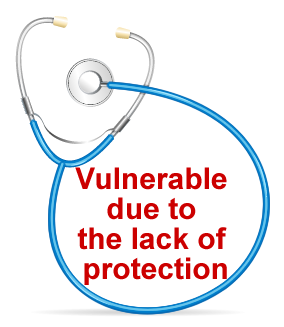My spirits are lifted by the weather, with the prospect of an abundant garden and also by a seemingly change in direction amongst the people I meet.
The change in direction, it seems to me, is mostly driven by our younger people, who are demanding that we tackle climate change which, of course, has started other conversations about the integrity of our politicians and business people.
The ”leader of the free world” is still refusing to acknowledge climate change and at the same time openly tells lies.
In this country it is rare to meet someone still denying climate change but cynicism about the honesty within companies and our most senior politicians is all pervasive. I believe that the conversations about a gentle capitalism have, at last, starting to reap rewards.
Within my world of financial services, the conversations are moving on at a fast pace, we are moving away from “green wash” to evidence-based impact investing, using money to influence good outcomes, hurrah for that.
One of my passions is gardening.
Trees are very much part of garden design as they give structure, shade and perspective, they are also essential to life.
I recently accepted an invitation to a meeting held at WorcesterCC about trees in our urban landscape.
Some facts :
- It takes 18 to 20 years for a tree to become carbon neutral.
- One mature tree can produce the same cooling effect as 10 room sized air conditioners.
- Trees can save up to 10% of local energy through the moderation of local climate
What is it and why is it the foundations of a financial plan?
It’s an insurance that protects our savings and our income.
It’s an essential for anyone who is self-employed as they receive no help from the state if they are sick or have an accident. It is very important for anyone who is employed or caring for their family.
For those who are employed the government provides statutory sick pay (SSP) through your employer for up to 28 weeks. The current level of benefit is £94.25 a week. Any additional pay during sickness is down to the discretion of your employer; most employers are small businesses and therefore unable to afford to pay you and your temporary replacement whilst you are off sick.
The insurance companies report their claims experience annually. The dramatic change, you will not be surprised to know, is the high level of stress related mental health claims.
The biggest shock for me was to hear of a high level of death claims for males under the age of 40 due to suicide.
The good news is that income protection insurance recognises the need to provide support and counselling to claimants for medical and psychological problems. Of course, the types of contract vary depending on your occupation, existing health conditions and your age and what you can afford to pay.
I have just spoken with Steve, who not only agreed that I should tell you his story but added some important detail.
I originally recommended income protection to Steve as he is self-employed and a landscape gardener.
Steve is currently 52 and has been unable to work at all since March, due to a leg injury, the current situation is that he may not be able to return to work for several months. As a result of which his savings are becoming depleted. It is also possible that he may have to retrain or restrict his work in the future.
Steve became a client after an introduction from his sister in 2010.
His objective was to pay off his mortgage and build his pension and savings. He did not recognise a need to cover his income and I failed to give it sufficient priority in our meetings. However, in 2015 he agreed to apply for income protection.
Steve had two pre existing conditions, one effecting his heart and one for his back, which meant that these would be excluded from any claims. He decided not to accept the terms offered and remained uninsured. He concluded that he was better off just building up his investments. A decision he now regrets.
He is not entitled to any state assistance, being self-employed. In our telephone conversation this morning he said that he regretted the decision but also pointed out that at a younger age people are less likely to have pre existing conditions and of course the cost of insurance is lower.
Do you know anyone who needs to check their employers sick pay scheme or is self-employed?
Are they aware that SSP only last for 28 weeks and is never sufficient to meet most living expenses? Not being insured can seriously affect your retirement income, as you cannot fund pensions when you do not work (except at the level of £3,600 a year). If you are self employed or take career breaks your National Insurance contributions may be insufficient to pay a full state pension.
You are 26 times more likely to be off work for more than 6 months than die before you retire.
Many IP providers offer a range of counseling or therapies to assist your recovery, at no cost.
Some providers include a payment should a dependent child be diagnosed with a serious illness.
If passing on assets is important then business relief schemes are worth considering.
You do not have to be a business to do so. The advantages, over using the 7-year gifting rules, are that you keep control and they are effective after 2 years.
They are part of current Inland Revenue tax planning, as they encourage investments in specific types of assets, some of which are high risk and some not. They have been used to encourage investments in alternative energy, for an example.
If you want to talk with me about their suitability in your planning, please ask.
Jan





